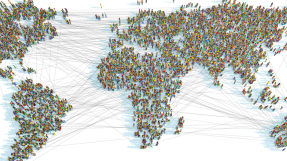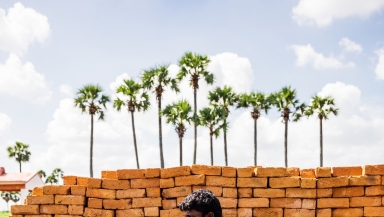
We can think of slavery as something that belongs in the past, but tragically it still affects millions of people worldwide, and the injustice for some victims has only worsened during the pandemic.
Christian Today speaks to Euan Fraser, Public and Corporate Affairs Manager at International Justice Mission, about the scale of the problem and what impact the pandemic has had.
CT: What is the scope of slavery and trafficking today?
Euan: Slavery and trafficking are obviously related issues and although they will take different forms, at their heart is the exploitation of those who are vulnerable.
They could be vulnerable because they are in poverty or have a disability. They could be facing discrimination, fleeing violence or simply be searching for a new start. Whatever form the vulnerability takes, traffickers will be looking to take advantage of that and exploit those people for profit.
There's been a long association in the media of trafficking with sexual exploitation but forced labour in places like factories, farms or domestic servitude, is also a huge problem. Across the world there's an estimated 40 million people trapped in modern slavery and out of those, an estimated 25 million are in forced labour.
CT: How much of a problem is it here in the UK?
Euan: We can think of it as a distant problem but modern slavery is a significant issue within the UK and the numbers identified are growing each year. It can be happening within our own communities or we can simply be connected to it in some way through the supply chains behind the things that we buy and take for granted every day, whether that's cocoa, coffee, the cobalt in our batteries and phones, or our clothes. They can all be connected to this problem.
Other places include nail bars, car washes or children being forced to carry drugs for county lines gangs. Wherever you choose to look, you'll find exploitation. And what we see around the world is that we'll find exploitation wherever traffickers can act with impunity, with little oversight or consequence for exploiting people.
CT: Is that because of weak policing or laws?
Euan: Looking at the global picture, in most places around the world slavery, trafficking or exploitation is criminalised. But the problem we often see is that those laws aren't enforced for one reason or another. That can be because there is a lack of political will or a lack of understanding or resources. When that's the case, trafficking and slavery becomes very low-risk and high-reward for traffickers.
At IJM, we are focused on changing that equation and working with local authorities, governments and law enforcement agencies to support their response so that they more proactively identify survivors and make sure they get the support they need. We also work with them to make sure that perpetrators are held to account so that there are consequences for those who commit this crime, as well as justice for the survivors.
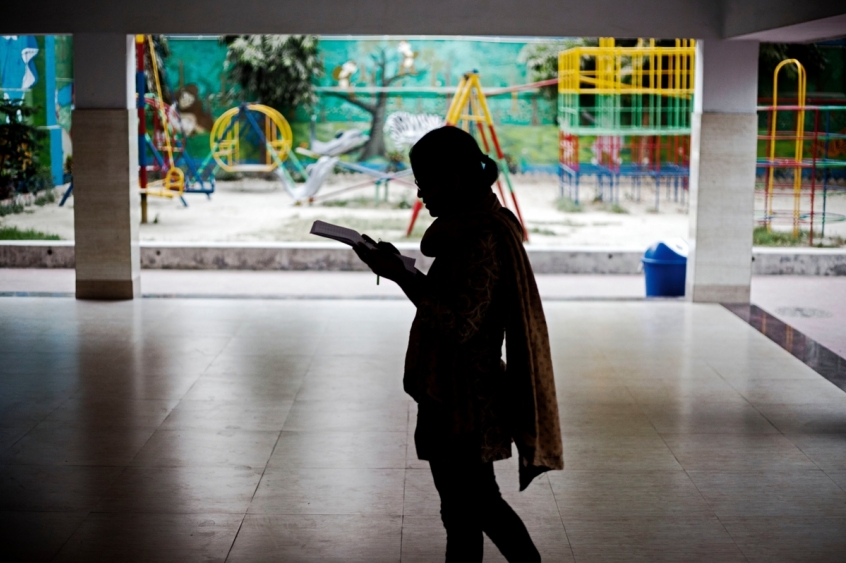
CT: As individuals, we can feel very powerless to help people in slavery because it seems like a problem that is so hidden behind closed doors. Is it as hopeless as that?
Euan: It's difficult to read the stories of people being locked away. In terms of what constrains people, it sometimes is being physically locked away, but oftentimes it's actually psychological control which is being used to prevent them from leaving. That can be in the form of repaying a debt, or threats against them or their family. But what we've seen is that when laws are more effectively enforced, the prevalence of slavery falls. When authorities are properly equipped to do something about this problem and in a way that is sensitive and won't re-traumatised the victim - whether a victim of forced labour or sexual exploitation - that is the key to tackling this problem.
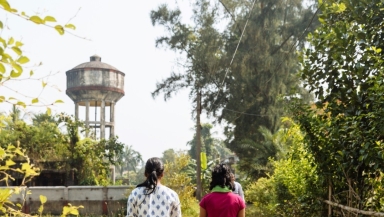
We partner with the local authorities in helping people out of exploitation, and we're essentially there to make it less intimidating for the survivors and to make sure that they get the support they need straight away.
CT: How has the pandemic impacted on this problem?
Euan: Obviously there have been additional challenges in reaching people who are particularly isolated at this time. Lots of people have been made more vulnerable to exploitation over the last year and, sadly, we've also seen a big rise in the online exploitation of children during this time.
But we've also seen local authorities continue to respond and help them out of that really troubling form of abuse. They've been continuing to reach out to vulnerable groups and people, and so there have been lots of stories of hope even during this pandemic. For example, one of our offices in South Asia saw 6-7,000 people released from bonded labour in just one instance.
CT: So the work of rescue hasn't stopped during the pandemic?
Euan: No. It's had to adapt, as we have all had to, but thankfully we're still seeing our teams and our partners being able to respond and reach people who are at risk.
CT: When someone is rescued, thinking particularly in terms of victims of sexual exploitation, what kind of support do they need to help them with recovery?
Euan: Every individual is different and so it's really important that support is tailored to their individual needs, and that this support is trauma-informed. A lot of survivors will struggle to trust other people and so it might take months or years to build up a level of trust to disclose fully what has happened to them - even with someone who has been working closely with them.
There are immediate needs like making sure they are safe from other traffickers and that any health issues are seen to. But we also need to make sure that the long-term needs are cared for. That can take a very long time - in some cases years. But we've seen a number of people we've helped out of exploitation go on to do amazing things. Some have joined our staff and are now working to help others out of exploitation.
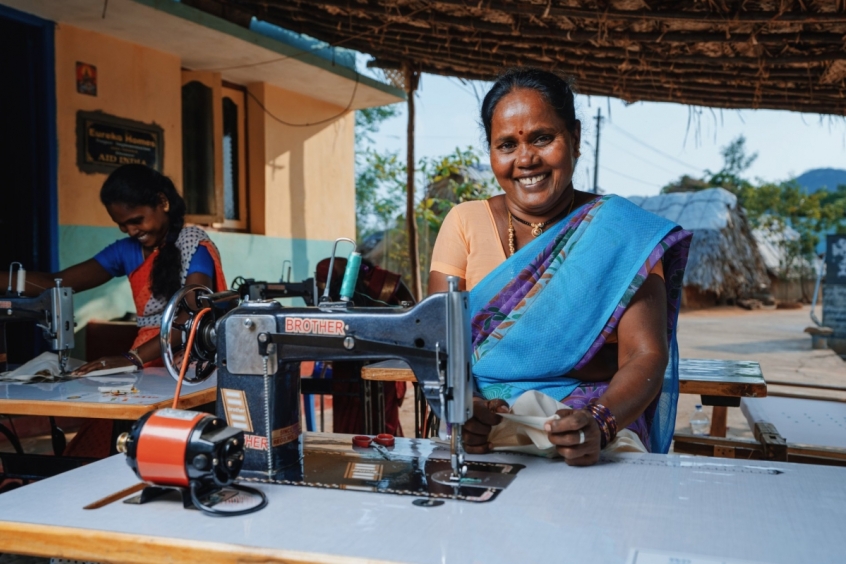
CT: Pornhub, a website many groups and Christians have been campaigning against for a while now, has been in the news a lot recently over abusive videos and the action it's now taking. Do you think it could be a turning point in terms of our awareness of sexual exploitation or how we hold platforms like this to account?
Euan: I would like to hope we're at a turning point but it's an enormous problem. I don't think the problem of online exploitation is one that we properly understood at the start of the year and, sadly, it's grown enormously during the pandemic. The lockdowns created a perfect storm of sex offenders in the UK, other parts of Europe, America and the Philippines - a known hotspot for the online sexual exploitation of children - all locked down and spending more time at home. And so there was increased vulnerability and we saw a big increase in reports of this form of abuse, which is very concerning.
There are signs of hope too, though. In the UK for example, there is new legislation coming in in the New Year around online harms which will place a duty on technology companies and social media firms to make sure that their platforms aren't being used for this form of abuse. That could be really significant because one of the big challenges around this is that it requires a lot of innovation in order to detect this form of abuse. At the moment, livestreamed abuse simply isn't detected automatically and that's one of the big barriers to protecting the children involved. I'm hopeful that legislation like this will help.
CT: We've just celebrated Christmas. Is Christmas a time when there is also exploitation?
Euan: This is probably when the supply chain issues I mentioned earlier come into focus because when times are difficult and there is demand for cheaper products, then that potentially causes issues for workers further down the supply chain. I think there is certainly an opportunity for people to make more ethical choices about where they do their shopping at Christmas and educate themselves about any exploitation that may have occurred in the manufacture of gifts.
CT: In terms of exploitation in the UK, are there signs that we can look out for in our communities?
Euan: The Clewer Initiative, which is the Church of England's anti-trafficking project, has produced some good resources on this very issue, as has the Modern Slavery Helpline. But it's always good to keep an eye out for people who are isolated or aren't able to speak for themselves, or anyone who may be consistently getting picked up and dropped off at unusual hours of the day.
CT: What do you think the Church's role can be in terms of the fight against slavery and trafficking?
Euan: The Church definitely has a role to play because its influence around the world is huge and it can help congregations to understand these issues, whether that's trafficking and exploitation in their own communities or globally.
IJM actually has a programme for churches to help them in responding through prayer, action or giving by becoming 'Freedom Churches' (find out more here). Individual Christians can also pray and we have resources for that too.
But certainly there's an onus on the Church to speak against injustice and to speak out for those who are most vulnerable - which may be entire communities. They can call out the structures that enhance vulnerability or which fail to hold perpetrators to account. When it comes to the problem of exploitation, there's a huge amount that the Church can give.












